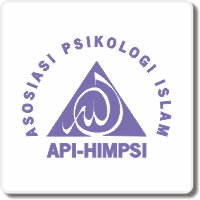Investigating of Subjective Well-being On the Honorary Education Staff at Malikussaleh University, Aceh
DOI:
https://doi.org/10.32923/psc.v4i1.2358Keywords:
SWB, Honorary Education staff, Malikussaleh University, AcehAbstract
This study presents the Subjective Well-being of honorary employees of education staff (tendik) at Malikussaleh University (Unimal). Subjective well-being (SWB) as a psychological construct is oriented to the individual's positive appraisal and affection towards the reality of his life journey. Work routines carried out by individuals are the main focus of arising out of SWB in individual reality because work is understood as a means of forming a decent (prosperous) life. The objectivity of this study explains the individual's knowledge of SWB, the meaning of SWB in the reality of work, and the factors that encourage the arises of SWB in individuals. The design of this study used a phenomenological type of qualitative approach. Participants were taken randomly through purposive sampling input, totaling 15 people from 25 planned research subjects. Field data searches were carried out by in-depth interviews and FGDs. The findings of this study inform that in general, honorary education staff working at Unimal have good SWB, even though they are still honorary staff.
Downloads
Published
Issue
Section
License
Copyright Notice
The Psychosophia: Journal of Psychology, Religion, and Humanity is under the Creative Commons Attribution 4.0 International (CC-BY 4.0) License, according to which:
1) Authors retain copyright and grant the journal the right to first publication, with the work simultaneously licensed under the Creative Commons Attribution (CC-BY 4.0) that allows the sharing of articles published with the acknowledgment of authorship and the initial publication in this journal.
2) The authors are authorized to make additional contracts separately for distribution of the version of the work published in this journal (for example, publication in an institutional repository or as a chapter of the book), as long as there is recognition of authorship and initial publication in this journal.
3) Authors are authorized and encouraged to publish and distribute their work online (for example, in institutional repositories or on their personal pages) at any time before or during the editorial process, as it increases the impact and reference of the published work.






